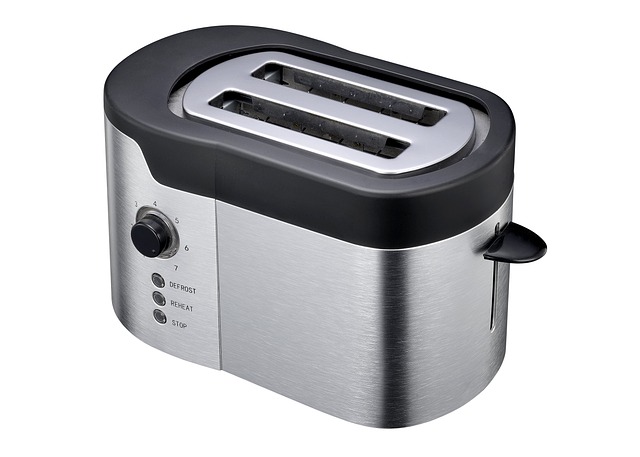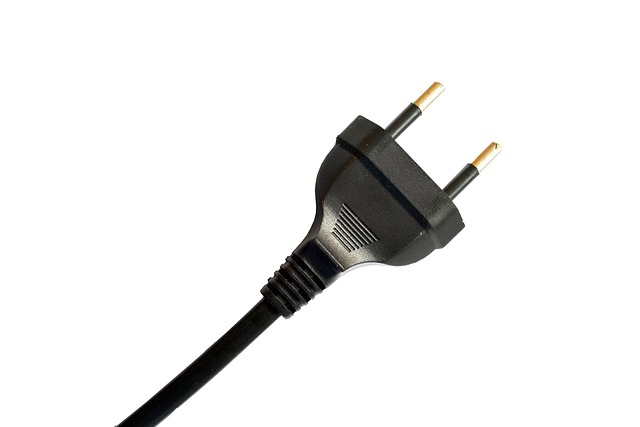When selecting major appliances, it's crucial to consider your household's specific needs, kitchen layout, and energy efficiency requirements. Ensure that the size of your refrigerator, freezer, washer, and dryer aligns with your family size and dietary habits, as well as the available space in your home for optimal functionality and design. Compact models are ideal for smaller spaces, and front-load washers can be a better fit for limited areas. Energy-efficient appliances, marked with ENERGY STAR labels, can lead to significant savings on electricity bills without compromising performance. Factor in the total cost of ownership, including maintenance and operational costs, and consider high-efficiency models that offer long-term economic benefits despite their higher upfront costs. Look for durable appliances with robust construction and quality materials, and pay attention to warranty coverage to avoid costly repairs later on. Embrace smart technology in your kitchen and laundry appliances for added convenience, efficiency, and energy savings. These innovations not only streamline household tasks but also contribute to a more personalized, efficient, and secure living environment, making smart investments that are adaptable to future technological advancements.
Navigating the selection of major appliances tailored to your home’s specific needs and space can be a prudent investment for comfort, efficiency, and longevity. This comprehensive guide delves into the nuances of choosing the right appliances, emphasizing energy efficiency, cost-effectiveness, durability, warranty options, and brand reputation. With sections dedicated to assessing modern features for kitchen and laundry essentials, and understanding the impact of technology in smart home appliances, this article equips you with the knowledge to make informed decisions for your living space.
- Understanding Your Household Needs and Space Constraints
- Evaluating Energy Efficiency and Cost-Effectiveness of Appliances
- Assessing Durability, Warranty, and Brand Reputation in Major Appliances
- Features to Consider for Modern Kitchen and Laundry Appliances
- The Role of Technology in Smart Home Appliances: A Guide for Homeowners
Understanding Your Household Needs and Space Constraints

When selecting major appliances for your home, it’s crucial to align your choices with the specific needs and dynamics of your household. Begin by assessing the frequency and type of cooking you engage in to determine the best range or cooktop for your kitchen. Consider the size of your family and dietary preferences when evaluating refrigerator capacity and freezer space. For laundry, take into account the amount of clothing you need to wash regularly to select a washer and dryer that are appropriately sized for your needs. Additionally, factor in the available space within your home; ensure that the dimensions of your chosen appliances fit comfortably within their designated areas. Layout and workflow should also be considered, particularly when selecting a dishwasher or a new range, to facilitate an efficient and seamless kitchen environment.
Space constraints are another significant factor in the selection process for major appliances. Measure your allotted spaces carefully, leaving ample room for ventilation and maintenance access, especially for built-in units. For instance, a compact dishwasher or a space-saving refrigerator might be more suitable for a smaller kitchen or a galley layout. Similarly, front-load washers are often better options in limited spaces compared to top-load models. By understanding your household’s specific needs and the physical limitations of your living space, you can make informed decisions that optimize both functionality and design within your home.
Evaluating Energy Efficiency and Cost-Effectiveness of Appliances

When selecting major appliances for your home, evaluating energy efficiency and cost-effectiveness is paramount to ensure long-term savings and environmental sustainability. Energy labels such as ENERGY STAR are valuable tools in assessing the efficiency of appliances. These labels indicate how much energy an appliance uses compared to non-labeled models, enabling homeowners to make informed decisions. For instance, a refrigerator with an ENERGY STAR label could save you hundreds of dollars over its lifetime by reducing electricity consumption without compromising performance. Additionally, consider the size and capacity of the appliance in relation to your household needs; oversized units can lead to unnecessary energy use.
Cost-effectiveness extends beyond the initial purchase price. Factor in operational costs, maintenance expenses, and potential rebates or tax credits associated with energy-efficient models. High-efficiency appliances often come with a higher upfront cost, but their lower energy consumption translates to savings on utility bills over time. It’s advisable to calculate the total cost of ownership, which includes the price of the appliance plus the estimated energy costs during its lifespan. By comparing these totals for different models, you can identify the most economical option for your home, ensuring that your major appliances contribute positively to both your budget and the environment.
Assessing Durability, Warranty, and Brand Reputation in Major Appliances

When selecting major appliances for your home, assessing durability is paramount. High-quality construction and sturdy materials can ensure that your investment stands the test of time. Look for appliances with robust designs that align with the level of use they’ll face in your household. Stainless steel interiors, heavy-duty motors, and quality insulation are indicators of durability. Additionally, consider the load capacity and efficiency of refrigerators, dishwashers, and washing machines to ensure they meet your family’s needs without frequent repairs or replacements.
Warranty coverage is another critical aspect when choosing major appliances. A comprehensive warranty can provide peace of mind by mitigating potential repair costs. Manufacturers often offer different types of warranties, including limited and full coverage options. It’s important to understand the terms of the warranty, including what is covered and for how long. Moreover, a reputable brand with a track record of honorable warranty service can be a reliable indicator of the quality you can expect from their appliances. Brands that are well-regarded in the industry typically back their products with transparent and customer-friendly warranties. Brand reputation, therefore, is closely tied to the reliability of the product’s warranty. Before making a purchase, research the brand’s history, customer reviews, and warranty policies to ensure a harmonious blend of durability and support for your major appliances.
Features to Consider for Modern Kitchen and Laundry Appliances

When selecting major appliances for your modern kitchen and laundry space, it’s crucial to consider both efficiency and functionality to ensure they meet your needs and complement your lifestyle. In the kitchen, focus on appliances that offer advanced features such as smart technology integration, which allows for remote operation and monitoring via apps on your smartphone. Energy-efficient models are a must, as they not only save on utility bills but also reduce your carbon footprint. Refrigerators with ample storage options, versatile ranges with convection cooking capabilities, dishwashers with quiet operation and water-saving features, and sleek over-the-range microwaves that combine convenience with modern aesthetics are all key elements for a contemporary kitchen setup.
For the laundry area, consider high-capacity washing machines and dryers that can handle large loads, saving time and effort on multiple washing cycles. Look for models with specialized cycle options to cater to various fabric types and care requirements. Additionally, front-load washers are often more energy-efficient than top-load units due to their ability to use less water and have smaller footprints, making them ideal for contemporary living spaces. The inclusion of smart laundry appliances that can notify you when cycles are complete or even suggest the best settings for your laundry load can add a level of convenience and modernity to your home’s laundry room. Opting for major appliances with a focus on durability, energy efficiency, and smart technology integration will ensure they serve you well for years to come.
The Role of Technology in Smart Home Appliances: A Guide for Homeowners

When considering the integration of technology into your home through major appliances, it’s crucial to understand the benefits and features that smart home appliances offer. These advanced devices are equipped with capabilities that extend beyond traditional functionality, incorporating connectivity, automation, and efficiency. Homeowners can now enjoy the convenience of remotely controlling certain appliances, receiving energy usage insights, and optimizing their consumption patterns. For instance, smart refrigerators can maintain an inventory of their contents, suggest recipes based on available ingredients, and even order products when stocks are low. Washing machines and dryers have evolved to offer precision washing cycles, which use sensors to determine soil levels and fabric types, ensuring optimal cleaning while conserving energy. Dishwashers now communicate with sensors to detect soil levels and water hardness, adjusting their cycles accordingly for maximum efficiency.
The integration of these smart features into major appliances not only enhances the user experience but also contributes to sustainable living. With smart thermostats, homeowners can fine-tune heating and cooling systems to maintain optimal temperatures, reduce energy bills, and minimize environmental impact. Lighting systems have been transformed with smart bulbs that adjust brightness based on time of day or activity, ensuring both convenience and cost savings. Security systems now offer remote monitoring and automated responses to potential threats. When selecting smart home appliances, it’s important to assess your household needs, budget, and the compatibility of devices with your existing home automation system. Consider the long-term benefits and how these appliances can adapt to future technological advancements, ensuring that your investment remains relevant and valuable over time. By choosing major appliances with smart capabilities, homeowners can enjoy a more efficient, comfortable, and secure living environment.
When equipping your home with major appliances, it’s crucial to consider both your household’s specific needs and the available space. By evaluating the energy efficiency and cost-effectiveness of these appliances, you can make informed decisions that will save money and resources over time. Assessing durability, warranty, and brand reputation ensures long-term value and reliability. Modern kitchen and laundry appliances come with a plethora of features that enhance convenience and efficiency. Additionally, embracing smart home technology through your major appliances can elevate your living experience with advanced control and automation. In conclusion, selecting the right major appliances for your home involves a balance of practical considerations and modern conveniences, all aimed at optimizing your domestic environment. With careful planning and attention to these factors, you’ll find appliances that meet your needs while providing years of reliable service.
